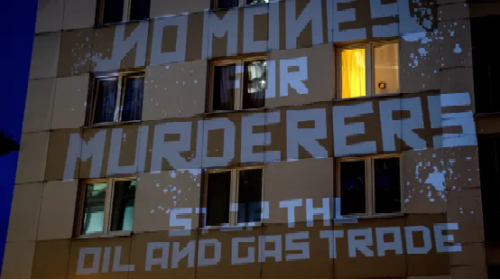There are doomsday visions of supply chains – already under pressure due to the pandemic – collapsing altogether, businesses forced into bankruptcy, mass unemployment.
Jörg Hoffmann, the head of IG Metall, a union that represents 1.2 million workers in the chemical, metal processing and food production, has warned of “a recession deeper than any of the recessions we have known until now.”
BASF, the chemical giant, and one of Germany’s biggest single purchasers and consumers of energy, said the effect of its production downturn would soon be felt.
“We would get very high unemployment, many firms would go bust,” the BASF chairman, Martin Brudermüller, has said. “It would lead to irreversible damage. To put it bluntly: it could lead Germany into its most serious crisis since the end of the second world war, and destroy our prosperity.”
A race against time is on to find alternative gas source supplies from the Netherlands and Norway and increase liquid natural gas (LNG) supplies from Belgian terminals and the US. Habeck has been to Qatar to secure further shipments and has ordered the construction of LNG carriers to float in German ports rather than wait for the construction of proposed new LNG terminals, which will take too long. The abolition of coal-fired plants – seen as a central part of the climate emergency plan – may yet be delayed.
The pressure is on to scale up and speed up renewable projects in wind and solar. Companies such as the pharmacy giant Merck are making their own plans to build wind turbines and solar energy panels to increase their independence – if only to be able to heat their offices. But it is a gargantuan effort that will probably take years and in the meantime Germany is left looking extremely vulnerable.
Some companies are even contemplating moving their production facilities abroad, predicting that operating in Germany will become prohibitively expensive and triggering fears Europe’s economic motor is in danger of losing its competitive edge.
While Habeck believes Germany is in a position to wean itself off Russian gas in around two years’ time, Brudermüller believes four to five years is more realistic. Some experts say by the end of the decade is more likely.
We believe everyone deserves access to information that’s grounded in science and truth, and analysis rooted in authority and integrity. That’s why we made a different choice: to keep our reporting open for all readers, regardless of where they live or what they can afford to pay. This means more people can be better informed, united, and inspired to take meaningful action.
In these perilous times, a truth-seeking global news organisation like the Guardian is essential. We have no shareholders or billionaire owner, meaning our journalism is free from commercial and political influence – this makes us different. When it’s never been more important, our independence allows us to fearlessly investigate, challenge and expose those in power. Support the Guardian from as little as $1 – it only takes a minute. If you can, please consider supporting us with a regular amount each month. Thank you.




